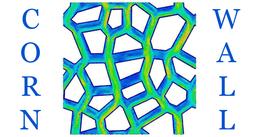Conference 21st June 2011 8 a.m. Falmouth Beach Resort Hotel, Falmouth, Cornwall, UK
Computational Modelling '11 Cornwall
- Web page
- http://www.min-eng.com/modelling11/index.html
- Categories
- CFD, Complex Systems, Computer Science, Finite differences, Finite elements, Finite volume, Magnetohydrodynamics, Optimisation
- Submitter
- Petrina Butler
This, the 3rd International Computational Modelling Symposium (Computational Modelling '11) is organised by Minerals Engineering International (MEI) in consultation with Dr Stephen Neethling and is sponsored by DEM Solutions.
Computational modelling is the use of fundamental physical equations to predict the behaviour of complex systems. Techniques include Discrete Element Modelling (DEM), Computational Fluid Dynamics (CFD) and Finite Element Methods (FEM). Due to rapid increases in computing power, it is now possible to carry out highly sophisticated and realistic simulations of scientific and engineering processes. Computational modelling has become an indispensable adjunct to the traditional modes of investigation via theory and experiment, and is increasingly viewed as ‘a peer methodology to experiment and theory’.
Computational modelling provides engineers with the ability to study systems in ways that are often not possible with experiments. This can be because of the difficulty in carrying out measurements within the systems, an inability to change the experimental input parameter independently or simply because of the cost involved in building an experimental system. In order to be able to use computational modelling in this way we need to have robust models that we trust and which can be solved efficiently.
In minerals engineering, the typically complex multi-phase nature of the systems makes modelling particularly challenging. This has resulted in a wide range of different techniques being applied, ranging from Computational Fluid Dynamic methods such as Finite Element, Finite Volume, Smooth Particle Hydrodynamics to particle methods such as Discrete Element Methods, as well as many others. Given the interactions that occur in minerals processing systems, an increasing area of study is in coupling different methods.
In order to have confidence in these models, they need to be verified against experimental results. This has led to a complementary development and use of more advanced measurement techniques such as various forms of tomography, particle tracking techniques such Particle Image Velocimetry and Positron Emission Particle Tracking and many others.
The aim of this conference is to bring together both users and developers of computational modelling from academia and industry to share their knowledge and expertise. This conference is aimed at the full spectrum of people involved in computational modelling in minerals processing, from model development, validation and all the way through to application.
The specific areas include:
- Model development and computational techniques
- Modelling of minerals processing unit operations
- Optimisation of plant and circuit operation and design
- Experimental validation including novel experimental techniques
Organisers
Computational Modelling '11 is organised by Minerals Engineering International (MEI) in consultation with Dr Stephen Neethling.
Stephen Neethling is a Senior Lecturer in the Royal School of Mines at Imperial College London. He obtained his PhD on the modelling of Froth Flotation from the University of Manchester, where he also worked for a number of years a lecturer. He obtained his undergraduate degree in Chemical Engineering from the University of Cape Town.
Click here to view the conference report, programme and delegate list from Computational Modelling 05 & 08:
Computational Modelling 08: Report | Programme | Delegate List
Computational Modelling 05: Report | Programme | Delegate List
Continuing Professional Development
Computational Modelling '11 is certified for Continuing Professional Development
